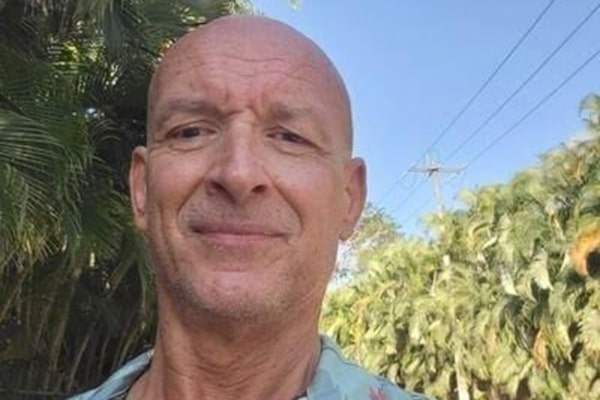
Richard Bilkszto died by suicide this July, his lawyer said in a statement. Earlier this year, he filed a lawsuit against the Toronto District School Board alleging he was bullied and harassed during anti-racism training sessions in the spring of 2021.Handout
So many bad things can happen at work. Among the worst is being subjected to racist treatment. Harassment of any sort is up there too. The workplace should be a safe space. The lucky among us think of our jobs as a vocation, and our place of employment as a sort of second home.
Another one of the worst things that can happen at work is being wrongly accused of being a racist. Such an accusation – even if it is challenged, disproved, dismissed – is a scarlet R that can be career-ending. Perhaps even life-ending, as we have learned with the tragic case of former Toronto District School Board principal Richard Bilkszto.
Mr. Bilkszto, according to a statement released by his lawyer, died by suicide this month at the age of 60. Earlier this year, he had filed a lawsuit against the TDSB (which has not been tested in court) alleging he was bullied and harassed during anti-racism training sessions in the spring of 2021 conducted by an outside consultant, KOJO Institute founder Kike Ojo-Thompson. This happened after Mr. Bilkszto – who used to teach in Buffalo – challenged the workshop leader’s statement that Canada was more racist than the U.S., according to the statement of claim.
Mr. Bilkszto said it would have done “an incredible disservice to our learners” to return to the classroom the next day and teach that Canada “was just as bad as the United States.”
The Toronto Star reports that this comparison was not initiated by Ms. Ojo-Thompson, but by other participants. And that her comment was a personal one about the racism she had experienced in Canada versus her time in the U.S.
Mr. Bilkszto’s lawsuit alleges that he was implicitly referred to as a racist and white supremacist, and that senior TDSB staff did not stop the harassment.
The Minister of Education is now investigating. Ontario’s Workplace Safety and Insurance Board previously found that the facilitator’s conduct was “abusive, egregious and vexatious, and rises to the level of workplace harassment and bullying.”
Of course, suicide is a complex matter. It is impossible for an observer to know exactly why Mr. Bilkszto ended his life. We don’t know about other possible factors, or whether this incident was directly responsible.
His lawyer, Lisa Bildy, says it was. “Unfortunately, the stress and effects of these incidents continued to plague Richard,” her July 20 statement read. “Last week he succumbed to this distress.”
The Ontario Principals’ Council said it was “deeply saddened and disturbed” by Mr. Bilkszto’s death: “Employers have an obligation to provide a safe working environment and to protect their staff from bullying and harassment.” That did not appear to happen for Mr. Bilkszto. And you can bet that it’s not happening for other people wrongly accused in other workplaces, in organizations that are themselves terrified to be labelled as racist.
Employers have an obligation to fairly investigate, to not make an example of someone without evidence, and to offer support for people who have suffered as victims of discrimination or harassment, as well as those accused. Rather than being automatically shunned by their peers and bosses, the accused should also be considered during this difficult process; they may require mental health support. Charged with being racist bullies, they themselves might be victims of bullying.
Mr. Bilkszto appears to have done the right thing: he spoke up, informed by his many years as an educator and what he had seen with his own eyes. I believe he had an obligation to express this view, for the learners, as he put it.
His experience is not encouraging for others with something to contribute in a workshop, particularly on the understandably sensitive issue of race.
Beyond the absolute tragedy of Richard Bilkszto, there is another potential victim here: diversity, equity and inclusion (DEI) training. You can already see the outrage brewing: not only are these sessions not worthwhile, they could be dangerous, detractors are saying, using this heartbreaking story as evidence.
This week, Ms. Bildy tweeted: “Many people have silently endured woke struggle sessions in the workplace, and it has felt like an assault on their conscience and humanity. It’s certainly not helping race relations in this country. Time to stop walking on eggshells and find a more unifying approach.”
I sat in briefly on a DEI workshop this week, one focused on Indigenous issues. It was run by a facilitator who was smart, sensitive and serious. The information was hard to take at times, as it should be. And it was eye-opening, as it should be.
DEI training, when done right, is essential. As for Ms. Bildy’s “woke struggle sessions” charge: We need to be awake to the struggles that Black, Indigenous and people of colour people face – experiences that some of us white people have the privilege of not having personally endured.
What’s not okay is if participants are shamed, especially well-meaning people who are doing their best. And trying to make a sincere point – a valid one, according to the lawsuit.
Richard Bilkszto deserved better. We all do.
 Marsha Lederman
Marsha Lederman